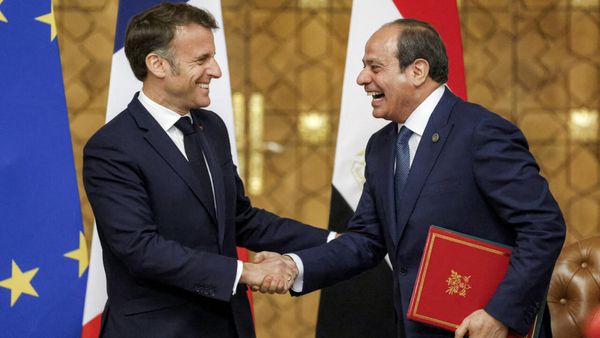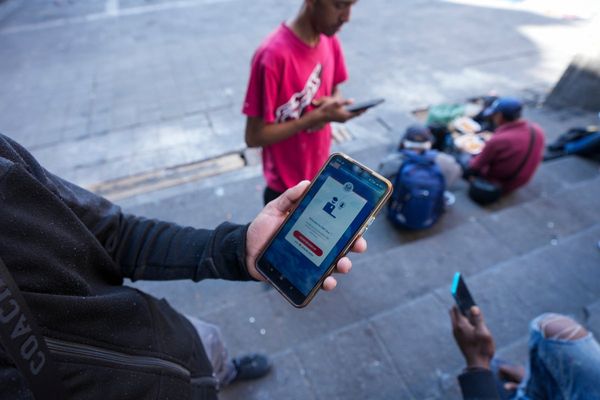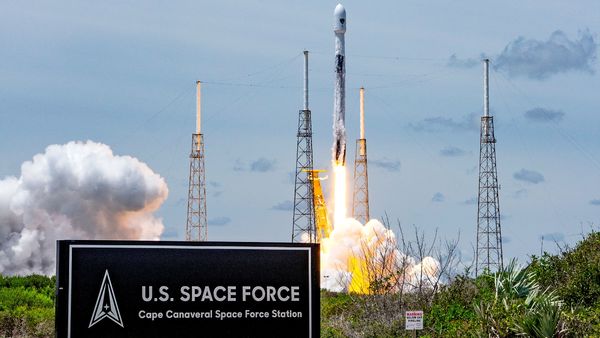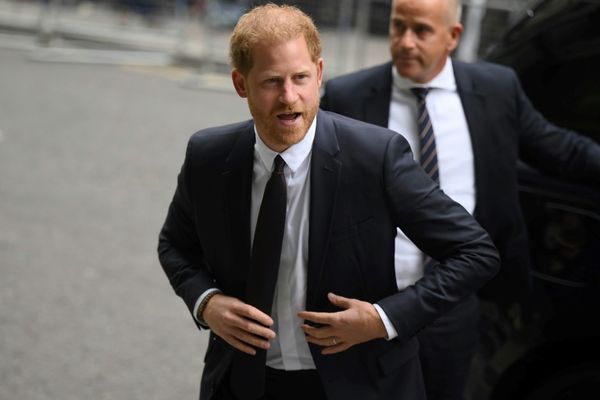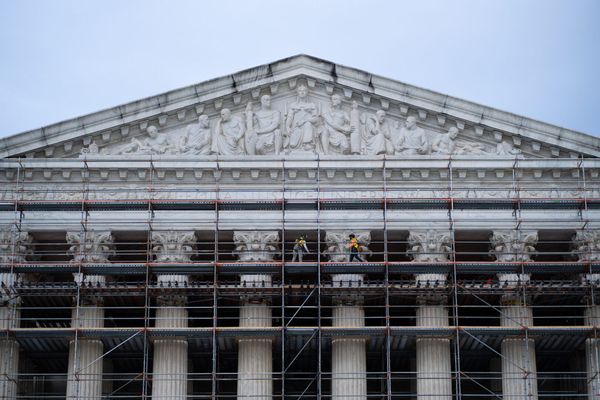
Good morning.
It feels like the dispute between workers in the public sector and the government has been going on forever, with fraught negotiations and industrial action now commonplace in many industries.
Yesterday, Rishi Sunak decided that it had gone on long enough. The prime minister announced that the government will accept, in full, the recommendations made by various independent pay review bodies for 2023-24. Sunak laid out how much each sector would be receiving and why the government would not be borrowing any money to fund the rises, which will be around 6% depending on the sector, with the money diverted from existing public service budgets. Call off the strikes, he told the unions: this is the final offer.
However, Sunak’s words have fallen on deaf ears, with the British Medical Association today starting its second day of a planned five-day walk out – the longest in NHS history. Junior doctors are asking for their pay to be increased by 35%. This headline figure may seem startlingly high, especially compared to what other sectors have been asking for, but to the BMA this is not a pay rise, it is pay restoration after years of wage erosion.
The government’s offer of 6% for NHS doctors is unlikely to satisfy aggrieved workers who are exhausted and angry. It is not in the government’s interests for workers to continue striking, with record backlogs that have only increased since Rishi Sunak pledged to bring them down and a looming general election. However, indefinite striking too seems an unsustainable option, especially if the government is serious about leaving the negotiating table.
In today’s newsletter I take a look at what these pay rises could mean for millions of public sector workers. That’s right after the headlines.
Five big stories
BBC | Rupert Murdoch’s News UK has offered tens of thousands of pounds to the parents who made allegations about Huw Edwards, in return for a television interview, according to sources at the media company. The Guardian understands that an interview with the couple has been recorded and is being edited for broadcast on TalkTV, the sister station of the Sun.
Hollywood | Hollywood actors are set to go on strike on Friday. The move, after a decision by the Sag-Aftra union, represents the first time in over 60 years that both writers and actors will strike simultaneously and is expected to bring a halt to the majority of Hollywood’s film and TV production.
China | The UK’s approach to a “whole of state” assault by the Chinese government on its economy, politics, civil infrastructure and academia is completely inadequate, an influential parliamentary committee has found.
Education | The school at the centre of a row over whether a student identified as a cat has been given the all-clear after a snap Ofsted inspection. Rye College, in Sussex, was investigated on the request of the equalities minister, Kemi Badenoch.
Health | NHS dental services are not fit for purpose and need urgent reform, according to MPs who have warned that people are resorting to DIY treatment using pliers.
In depth: What junior doctors, teachers, police officers and more have been offered

Rishi Sunak and Jeremy Hunt were reportedly making decisions down to the wire yesterday, before the prime minister made the announcement that millions of public sector workers would receive a new pay rise. The figures are:
• Armed forces – 5%, plus a £1,000 one-off payment
• NHS – 6%
• Junior doctors – 6%, plus a £1,250 one-off payment
• Teachers – 6.5%
• Prison officers – 7%
• Police – 7%
While the pay rises are more than the government wanted to give, they are still significantly below inflation (currently at 8.7%) and do not account for most civil servants. So, is it enough to quell the appetite for more industrial action?
***
Re-prioritising funds
The pay rises, Sunak said, would cost the government billions of pounds more than they had budgeted for, but the Treasury has stressed that the money will not be coming from borrowing or increased taxes. Borrowing, Sunak said, would exacerbate already high inflation. Instead, the pay rises would be paid for through existing departmental budgets. The news that no new money will be raised has set off alarm bells from unions, who are concerned that this will lead to cuts in their already hamstrung sectors. Sunak insisted that there would be no cuts, and that departments would instead “reprioritise” spending to help cover the pay increases – but it is unclear how this differs from cutting funding to certain parts of their budgets. The education unions have said that they have received assurances that “frontline” school services would not be affected or cut, but no other union has had such guarantees.
In his press conference, Sunak also said that about £1bn will come from higher visa fees and an increase in the NHS surcharge, but this is only a fraction of the amount that the government needs to cover the costs of the total pay rise.
***
The response

All of the teaching unions have said that they will be recommending that their members accept this pay rise. They said that 6.5% “recognises the vital role that teachers play in our country and ensures that teaching will continue to be an attractive profession”, adding that it is “the largest ever recommendation” from their pay review body.
Mary Bousted, joint general secretary of the National Education Union, told Sky News that the increase is a significant move, even though it is still below inflation, adding that their eight days of industrial action forced the government to reconsider their initial offer of 3.5%.
The FDA trade union, representing professionals and managers in the public sector, was similarly welcoming of the government’s decision to accept the recommendations of the pay review bodies, describing it as “both fair and reasonable”.
Other unions have not been as optimistic: the president of the Hospital Consultants and Specialists Association said it was unlikely the prime minister’s announcement would end industrial action, describing the offer as a “grandstanding PR stunt which remains scant on detail”. The general secretary of the Prospect union, which represents staff from the Met Office, Health and Safety Executive, and Natural England said the government’s handling of this process was “chaotic” and that it was “time the government recognised the value of its public services and allocated the money required to maintain them properly”. And the British Medical Association rejected the deal outright, saying the pay offer “fails to address” years of below-inflation pay deals and that the government was “driving doctors away” from the NHS.
***
What’s next?
Sunak stressed that this was his “final offer”, and that no amount of strikes would lead to more negotiations. However, the ambiguity around how these pay rises – which remain below what many sectors would like – will be funded arguably shows that the government is missing the point. When asked by the Guardian why they were striking, junior doctors in Oxford did not just point to pay. It was also about working conditions, which will only get worse if budgets are in any way reduced. “There’s no social environment. Nobody’s happy to be there any more. Those days where you had to push were hard. They have become the norm,” one doctor said.
This “demoralising” situation has created a retention crisis that has sent the NHS into a doom loop – the more people leave, the higher the work load is for those who are left, the poorer the service is for patients, which triggers more people to leave. Even if pay is temporarily settled, it is clear that the government and public sector workers still have much to negotiate.
What else we’ve been reading

I enjoyed Tshepo Mokoena’s interview with British singer Jorja Smith, who has had to grow up quickly since she was thrust into the spotlight (and on to social media) at just 18. Hannah J Davies, deputy editor, newsletters
New York mayor Eric Adams set up a hotline as part of a controversial directive to inflate the police’s authority to involuntarily hospitalise people who appear mentally ill, particularly in public. The hotline was supposed to be staffed with psychiatric specialists who could offer guidance to officers encountering someone in crisis. There was only one problem, Wilfred Chan writes: no police officer called it. Nimo
If you haven’t already heard, almost everyone from Succession is nominated for an Emmy, with the show up for a ridiculous 27 awards overall. As wild as that may be (four in best supporting actor alone?!) I loved this NYT (£) interview with Alan Ruck, who stole many of those season four scenes. Hannah
Even when he actively tries to not predict the future, Charlie Brooker cannot help himself. Stuart Heritage unpacks how the first episode of the latest season of Black Mirror has become the “figurehead of the potential Screen Actor’s Guild strike”. Nimo
Jonah Hill has been in the line of fire on social media for his “therapy speak” texts to his ex, forbidding her to pose for photos in a bikini among other things (not that I would be in favour of such a demand anyway, but she’s a surf instructor, Jonah!) Daisy Jones has asked a professional whether his words have anything to do with therapy at all. Hannah
Sport

Tennis | Sixth seed Ons Jabeur dug in to defeat the world No 2, Aryna Sabalenka, 6-7 (5), 6-4, 6-3 in Wimbledon’s semi-finals. The Tunisian, who also made it to last year’s final, will again play for her first major title as she faces Marketa Vondrousova on Saturday. The Czech Republic’s Vondrousova dominated her semi-final against Elina Svitolina, winning 6-3, 6-3 and dashing the Ukrainian’s hopes of securing a spot in her first grand slam final.
Cycling | The Basque rider Ion Izagirre, riding for Cofidis, won stage 12 from Roanne to Belleville-en-Beaujolais in the Rhone, after a solo attack in the final 30km. It was his team’s second success in this year’s Tour, following the French rider Victor Lafay’s win in San Sebastián, on stage two.
Golf | Rory McIlroy has said he would rather quit golf altogether than join LIV Golf, the controversial Saudi Arabia-backed breakaway tour that last month merged with the PGA Tour. “If LIV Golf was the last place to play golf on earth I would retire. That’s how I feel about it,” McIlroy said at the Scottish Open.
The front pages

The Guardian leads with “NHS unions’ fury after PM insists pay offer is final” while the Times splashes on “Sunak gives NHS strike doctors 6% ‘final’ offer” and the Daily Mail asks “Will doctors now end their callous strikes?”
The Daily Telegraph headlines its top story “Doctors urged to give in on pay deal” and the Daily Express claims “Fees paid by migrants will fund pay rises”. The i leads with “Pay rises for 1 million UK workers – as No 10 tries to end strikes” and the Mirror says “Pay relief but cuts pain”.
The Financial Times leads on “AI’s lurking perils spur US watchdog to investigate creator of ChatGPT” and the Metro with “England star’s sleep pills addiction”.
Something for the weekend
Our critics’ roundup of the best things to watch, read and listen to right now

TV
Celebrity Save Our Sperm (Channel 4)
If sperm counts continue on their current trajectory, every man in England will be infertile by 2045. This doc sees presenter Melvin Odoom, comedian Russell Kane and Made in Chelsea’s Ollie Locke provide a cupful of the necessary to be analysed by a fertility clinic, with interesting results. The tone is unglib and uncynical, helped greatly by presenter Dr Anand Patel, who acknowledges embarrassment without giving into it. Lucy Mangan
Music
J Hus – Beautiful and Brutal Yard
J Hus’s status appears to have grown during his three-year absence from music, an intriguing corrective to the idea that an artist needs to pump out a constant stream of product. Already proclaimed song of the summer by this very newspaper, the breezy Afrobeats rhythm of Who Told You is at odds with BABY’s lead single – the brooding, claustrophobic It’s Crazy – and the end product is exceptionally classy. Alexis Petridis
Film
Mission: Impossible – Dead Reckoning Part One
Seven films! Daniel Craig got sick of 007 after just five. But at 61, Tom Cruise (above) looks better than ever. In the past I have been agnostic about M:I, but the pure fun involved in this film, its silly-serious alchemy, and the way the franchise seems to strain at something crazily bigger with every film, as opposed to just winding down, is something to wonder at. Peter Bradshaw
Podcast
The Girlfriends (widely available, episodes weekly)
Vegas is a small world when your boyfriend is a plastic surgeon with a charismatic character and the number plate “Nip Tuck”, as Carole Fisher found. In this new podcast, which unravels beautifully, she recalls the moment Bob Bierenbaum began dating other women – and how she later banded together with them to fight for justice for his missing wife, Gail. Hannah Verider
Today in Focus

The Sun, the BBC and Huw Edwards: the story of a scandal
After a week of frenzied reporting about allegations against the BBC presenter, there are uncomfortable questions for the paper that ran the scoop, reports Jim Waterson.
Cartoon of the day | Ben Jennings

The Upside
A bit of good news to remind you that the world’s not all bad

The Women’s World Cup kicks off in Australia and New Zealand at the end of the month – and every one of the 736 players on the 32 competing teams have their own story of perseverance to reach the tournament.
Perhaps none are more compelling than that of Ireland’s Sinead Farrelly, who at 33 is taking part in her first World Cup. The reason? Farrelly had been out of the game for eight years before this April, due to injuries sustained in a car crash and the fallout of sexual coercement and harassment by a former coach. Yet she has fought back to become a key part of manager Vera Pauw’s lineup.
Profiling Farrelly in Moving the Goalposts, the Guardian’s women’s football newsletter (sign up here), Sophie Downey writes of the midfielder: “For a player whose time on the pitch had been relatively limited, her impact and courage off it has been transformational.”
Sign up here for a weekly roundup of The Upside, sent to you every Sunday
Bored at work?
And finally, the Guardian’s puzzles are here to keep you entertained throughout the day – with plenty more on the Guardian’s Puzzles app for iOS and Android. Until Monday.
